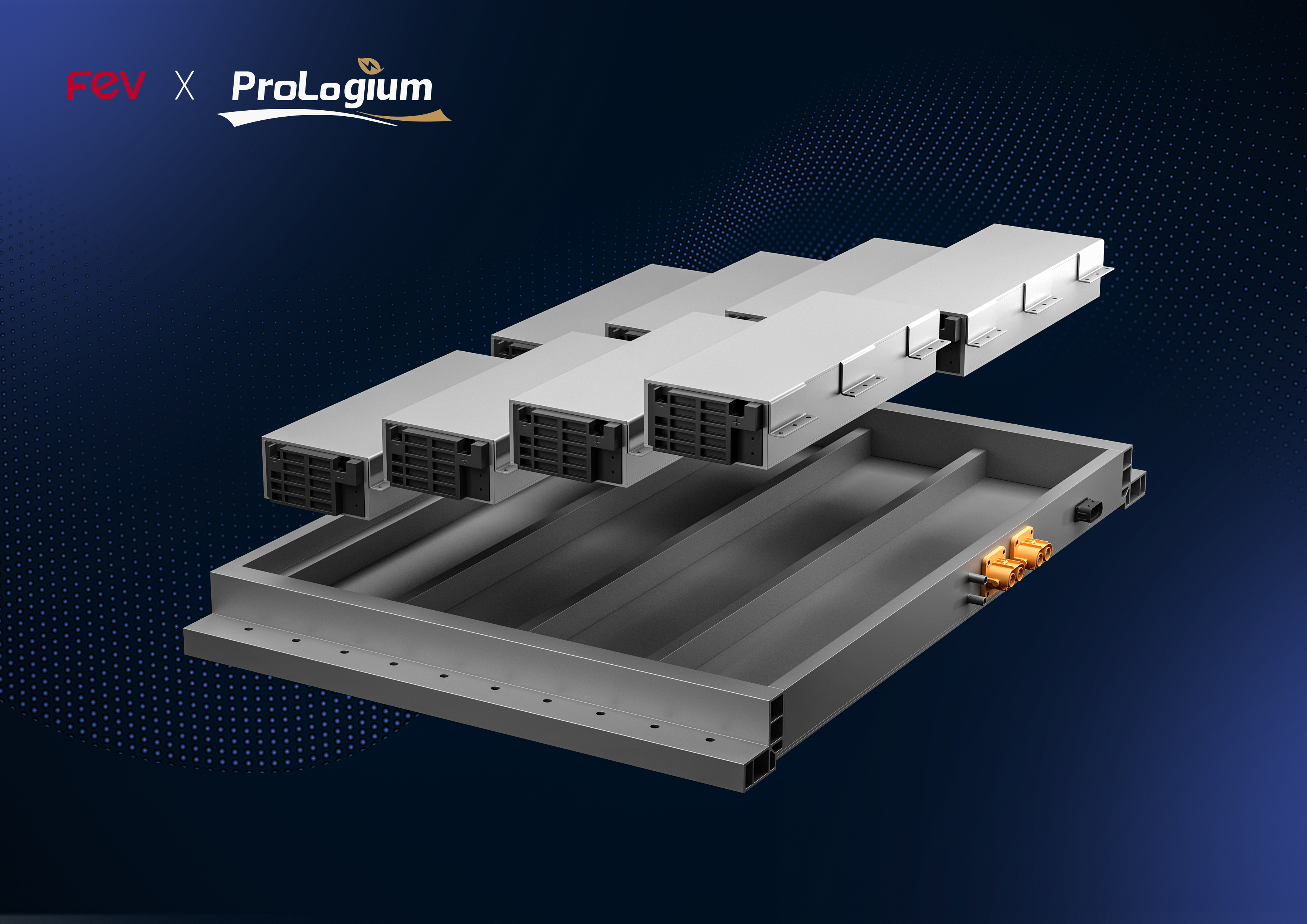FEV
and
ProLogium
present
the
latest
generation
of
their
Large-Footprint
Lithium
Ceramic
Battery
(LLCB).
Thanks
to
its
lightweight
design
and
increased
energy
density,
it
enables
longer
ranges
and
offers
the
option
of
ultra-fast
charging,
among
other
things.
All
this
is
made
possible
by
LLCB
technology
(Large-Footprint
Lithium
Ceramic
Battery).
With
its
anode
of
100
per
cent
silicon
this
battery
offers
a
10-times
higher
capacity
density
compared
to
graphite
anodes
used
today.
Depending
on
the
vehicle
segment
and
intended
use,
the
LLCB
saves
up
to
300
kg
or
allows
a
maximum
range
of
1,000
km.
The
applied
solid-state
electrolyte
is
non-flammable
and
increases
safety
against
thermal
runaway.
It
also
prevents
potential
short
circuits
caused
by
leaking
electrolyte
fluid
in
the
event
of
a
spill.
“For the LLCB solution, we have successfully combined ProLogium´s know-how in the field of cell development with our development, system and testing expertise,” said Dr. Thomas Hülshorst, Global Vice President Electric Powertrain at FEV. “Our collaboration on battery packs and concept designs focuses not only on regulatory standards, but also on market requirements. We even exceed these.”
The anode also enables ultra-fast charging, charging the battery from five to 60 per cent within five minutes. This allows the user an average range of 300 km. After further three minutes, the battery is charged to 80 per cent and can cover additional 100 km. In this way, the LLCB helps to bring charging times closer to the duration of a refueling process for vehicles with combustion engines.
At the Paris Motor Show 2024, FEV and ProLogium announced to continue their joint efforts for LLCB development in the future.
Read more: https://shorturl.at/9maEg
Hashtag: #FEV
The issuer is solely responsible for the content of this announcement.
Support InfoStride News' Credible Journalism: Only credible journalism can guarantee a fair, accountable and transparent society, including democracy and government. It involves a lot of efforts and money. We need your support. Click here to Donate
